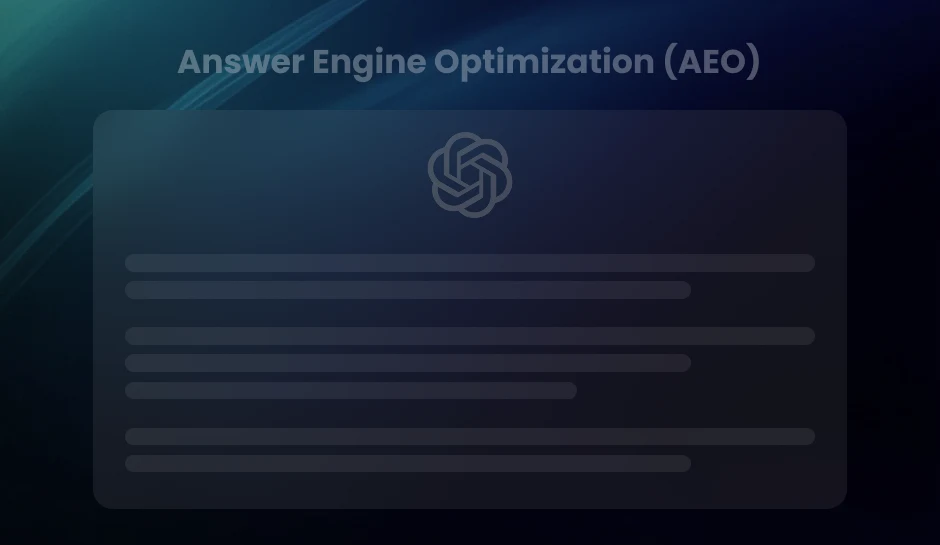
Campaign Attribution Models That Are Redefining Marketing Success Metrics
Navigating the complexities of customer journeys and identifying which marketing efforts drive conversions can be challenging. Campaign attribution models provide critical insights into the effectiveness of different touchpoints, helping businesses make data-driven decisions and optimize their marketing strategies.
How do you truly know which of your marketing efforts is driving business growth? This question keeps many leaders awake at night, especially as marketing channels multiply and customer journeys grow increasingly complex.
For businesses navigating the digital landscape, relying on surface-level insights is no longer enough. Many struggle with understanding the real value of their marketing campaigns. Are you overspending on channels that yield minimal returns? Are critical touchpoints in your customer journey being overlooked?
The answer lies in campaign attribution models—frameworks designed to uncover the hidden data behind every interaction, showing you what truly moves the needle. When done right, these models can transform marketing strategies, refine budget allocation, and ensure no marketing dollar goes unaccounted for.
Types of Campaign Attribution Models
Understanding which marketing efforts drive business growth requires choosing the right attribution model. Each attribution model provides a different view of how your marketing channels contribute to a conversion, and selecting the right one can significantly impact your strategy. Below, we break down the most common attribution models and how they can be applied to different business needs.
1. First-Touch Attribution
The first-touch attribution model assigns all credit for the conversion to the customer’s first point of contact with your brand. This model is particularly useful for businesses looking to understand the effectiveness of their lead-generation strategies. However, while highlighting the channels that first engage customers, it overlooks the value of subsequent touchpoints that may ultimately play a crucial role in decision-making.
Best Suited For: Campaigns focused on raising brand awareness or attracting new leads.
2. Last-Touch Attribution
With last-touch attribution, all credit is given to the customer’s final interaction before converting. This model is valuable for businesses where the last touchpoint before conversion plays a major role, such as in e-commerce or sales-driven environments. However, it tends to overlook earlier interactions that may have contributed to nurturing the lead, ultimately giving a one-sided view of the customer journey.
Best Suited For: Businesses with a clear path to conversion or a focus on closing sales.
3. Linear Attribution
The linear attribution model spreads the credit equally across all customer journey touchpoints. This approach benefits businesses that want to view each interaction as part of a larger process and assign equal value to every step. However, this model can dilute the influence of key moments, such as the final touchpoint before conversion, or the first interaction that generates interest.
Best Suited For: Organizations that wish to value each interaction equally and view the entire customer journey.
4. Time-Decay Attribution
Time-decay attribution assigns more credit to interactions that occur closer to the conversion point, with earlier touchpoints receiving progressively less value. This is ideal for businesses with a shorter sales cycle or those in industries where timing plays a critical role in conversion. However, it can underappreciate the influence of initial touchpoints, which may still have been essential in building interest.
Best Suited For: Shorter sales cycles or time-sensitive campaigns where the final push matters most.
5. Position-Based Attribution
Position-based attribution allocates credit to both the first and last touchpoints, with the remaining credit evenly distributed among the middle interactions. This model strikes a balance by acknowledging the importance of both the first point of contact and the final conversion, while also recognizing the role of mid-funnel touchpoints. However, it can still oversimplify the complexities of the customer journey by giving less weight to middle interactions than they might deserve.
Best Suited For: Campaigns where both the initial engagement and the final decision-making process are considered equally important.
6. Data-Driven Attribution (Algorithmic Models)
Data-driven attribution takes the complexity out of traditional models by leveraging machine learning to analyze data patterns and assign credit dynamically based on actual customer behavior. This approach provides a more accurate view of how each interaction contributes to conversion, making it ideal for businesses with diverse touchpoints and complex customer journeys. However, it requires access to large amounts of data and advanced analytics tools, which may not be suitable for all businesses.
Best Suited For: Companies with large data sets looking for precision and insights from sophisticated analytics.
The Strategic Importance of Campaign Attribution Models
Campaign attribution models are essential for aligning marketing strategies with broader business goals. These models empower businesses to make smarter, data-driven decisions that optimize performance and fuel growth by offering clear insights into how marketing activities influence customer behavior and revenue generation.
Aligning Marketing Metrics with Overarching Business Goals
Attribution models help connect marketing activities with your company’s key business objectives. Here’s how they enable strategic alignment:
-
Connecting Marketing Activities to Business Outcomes
Attribution models provide insights into how different marketing activities contribute to customer behavior and conversions. This connection ensures that marketing efforts are in line with core goals like driving sales, enhancing brand awareness, or increasing customer retention.
-
Tailored Focus on Specific Goals
- Customer Retention:
- Lead Generation:
Attribution models that prioritize post-conversion touchpoints, like follow-up emails or loyalty programs, are helpful for businesses focusing on retaining existing customers.
First-touch attribution highlights which channels bring in the most prospects, guiding businesses on how best to scale their lead generation efforts.
-
Strategic Decision-Making
By aligning attribution insights with business goals, decision-makers can ensure marketing strategies contribute to growth and achieve desired results, rather than relying on broad, generic metrics.
How Attribution Models Impact Budget Allocation
Effective budget allocation is one of the most tangible benefits of using attribution models. Here’s how they can help:
-
Maximizing ROI
Attribution models identify the most effective channels, allowing businesses to direct their budgets to high-performing areas, increasing ROI.
-
Optimizing Multi-Channel Marketing
- Paid Channels:
- Organic and Nurturing Campaigns:
Last-touch or data-driven attribution models can reveal that paid ads or search are responsible for driving the majority of conversions. In this case, businesses may choose to allocate more budget to these high-performing channels.
A multi-touch or linear attribution model will demonstrate the value of organic content or nurturing efforts, guiding businesses to allocate resources to long-term relationship-building tactics.
-
Efficient Resource Distribution
Attribution insights ensure that marketing budgets are spent wisely, optimizing overall spend efficiency and avoiding budget waste on underperforming channels.
Importance of Tailoring Attribution Models to Business Type and Scale
Every business is different, and your attribution model should reflect that. Here’s why customizing the model is important:
-
Small Businesses vs. Large Enterprises
- Small Businesses:
- Large Enterprises:
Simpler attribution models, such as first-touch or last-touch, are typically more effective for businesses with shorter sales cycles and less complex marketing strategies.
More complex businesses often benefit from advanced models like linear, time-decay, or data-driven attribution, which offer deeper insights into customer behavior across multiple touchpoints and extended sales cycles.
-
Customer Journey Complexity
For businesses with longer sales cycles or complex customer paths, multi-touch or time-decay attribution models will likely offer a more accurate picture. Conversely, first-touch or last-touch models suffice for shorter and more direct customer paths.
-
Scalability and Adaptability
As businesses grow, marketing strategies evolve, and customer journeys become more intricate. Tailoring attribution models ensures businesses can adapt and scale their insights accordingly, tracking the effectiveness of new channels, touchpoints, and strategies as they expand.
Challenges in Using Campaign Attribution Models
While campaign attribution models offer valuable insights, businesses often face several challenges when implementing them effectively. From data integration issues to over-attribution, understanding these challenges can help mitigate their impact and improve attribution accuracy.
Data Silos and Their Impact on Accuracy
Data fragmentation is one of the most significant obstacles businesses face when implementing campaign attribution models.
-
The Issue of Data Silos
The lack of integration can result in incomplete or inconsistent data, ultimately affecting the accuracy of attribution models. If marketing, sales, and customer service teams do not share data, creating a cohesive view of the customer journey becomes difficult, leading to inaccurate attribution.
-
Impact on Attribution Accuracy
When data is siloed, attribution models may not have access to the full picture of customer interactions. This leads to an incomplete understanding of which touchpoints contributed to a conversion, skewing the results and potentially misguiding marketing strategies and budget allocation.
Solution
To address this, businesses need to break down data silos by integrating various data sources, ensuring that all customer touchpoints are captured and analyzed in one unified system.
The Problem of Over-Attribution and Misinterpretation
Attribution models can sometimes overstate the importance of certain touchpoints, leading to misinterpretation of customer behavior.
-
Over-Attribution Issues
In some cases, attribution models may give too much credit to a single touchpoint, especially in the case of first-touch or last-touch models. Over-assigning value to one channel can lead to inaccurate conclusions about which marketing efforts are truly driving conversions.
-
Misinterpretation of Results
This can lead businesses to over-invest in one channel while neglecting others that contribute to conversions in less direct but still valuable ways. For example, giving all credit to the final touchpoint in a sale might overlook the nurturing role of earlier interactions.
Solution
To mitigate over-attribution, businesses should consider using multi-touch attribution models that distribute credit across the entire customer journey, providing a more balanced view of how different touchpoints contribute to conversions.
How Multi-Channel Interactions Complicate Attribution
In today’s marketing environment, customers interact with brands across multiple channels, making assigning accurate credit to each touchpoint increasingly difficult.
-
The Challenge of Multi-Channel Journeys
A customer’s journey may span online and offline channels, including social media, email campaigns, paid search, and in-store interactions. Determining how much each channel contributes to the final conversion becomes challenging with such complex touchpoints.
-
Complexity in Attribution Models
Multi-channel attribution requires sophisticated models that can account for a range of touchpoints, each influencing customer behavior at different sales funnel stages. Failing to capture and analyze all touchpoints properly can result in an incomplete or skewed view of the customer journey.
Solution
Businesses need to adopt advanced attribution models, like data-driven attribution, which can dynamically assess and assign credit based on actual customer behavior across all channels. Additionally, integrating omnichannel data helps ensure a holistic view of the customer journey.
Integrating Offline and Online Data for a Cohesive View
Integrating offline and online data is essential for providing a unified view of the customer journey, but it poses its own set of challenges.
-
Offline vs. Online Data
Traditional marketing efforts, such as TV ads, radio, and in-store promotions, often exist outside the scope of digital attribution models. As a result, businesses struggle to connect offline interactions with online conversions, leading to gaps in the customer journey and incomplete attribution insights.
-
Lack of Unified Data Tracking
Online interactions can be easily tracked through digital channels, but offline activities do not have the same level of tracking capability. This disconnect results in fragmented data that cannot accurately reflect the entire customer journey, especially when customers move between the physical and digital worlds.
Solution
Integrating offline and online data through tools like customer relationship management (CRM) systems, point-of-sale (POS) tracking, and customer surveys can help businesses bridge this gap. A comprehensive attribution model should be able to combine digital and offline touchpoints, creating a cohesive view of how all interactions contribute to conversions.
Emerging Trends in Campaign Attribution
The landscape of campaign attribution is evolving rapidly with new technologies and shifting privacy regulations. Here are some key emerging trends businesses need to watch:
Role of AI and Machine Learning in Predictive Attribution
- Predictive Insights:
- Dynamic Models:
- Personalization:
AI and machine learning help forecast customer behavior and campaign outcomes, allowing businesses to optimize strategies before launching.
Machine learning enables attribution models to adapt and improve based on real-time data, ensuring more accurate insights.
AI allows highly personalized attribution insights tailored to specific customer segments.
The Future of Privacy-Compliant Attribution in a Cookieless World
- Cookieless Solutions:
- Privacy-Centric Models:
- Consent Management:
With third-party cookies being phased out, businesses are adopting alternatives like first-party data and server-to-server tracking.
New attribution models focus on privacy, using aggregated data instead of personal identifiers to comply with regulations like GDPR.
Businesses leverage consent management platforms (CMPs) to obtain user consent for data collection, ensuring compliance.
Cross-Platform Attribution Models for Omnichannel Marketing
- Tracking Across Devices:
- Omnichannel Insights:
- Data Integration:
Cross-platform models allow businesses to track customer journeys across multiple devices and platforms, providing a unified view of each touchpoint’s influence.
These models ensure all touchpoints—whether online or offline—are accurately credited for conversions, helping optimize marketing strategies across channels.
Combining online and offline data is crucial for accurate cross-platform attribution, providing a comprehensive view of the customer journey.
Key Takeaways
- Campaign attribution models help businesses understand which marketing efforts truly drive growth and conversions by providing insights into the value of each customer touchpoint.
- Choosing the right attribution model, such as first-touch, last-touch, or data-driven, can significantly influence budget allocation and strategy optimization.
- Effective use of attribution models aligns marketing activities with overall business goals, ensuring smarter decision-making and better resource distribution.
- Overcoming challenges like data silos and multi-channel interactions is essential to obtaining accurate attribution insights and improving campaign performance.
- Emerging trends such as AI, privacy-compliant models, and cross-platform attribution are reshaping how businesses analyze and optimize marketing efforts.
Conclusion
Multi-channel marketing world, understanding the true impact of each touchpoint is crucial for optimizing strategies and maximizing ROI. Campaign attribution models provide the insights needed to break down the complexities of customer journeys and ensure marketing dollars are allocated effectively. Businesses can refine their strategies and make more informed decisions by selecting the right model, aligning it with business objectives, and overcoming common challenges. As new trends like AI, privacy compliance, and cross-platform tracking emerge, staying ahead of these shifts will be key to sustaining marketing success in the future.
Let’s optimize your marketing efforts together!
Just write to us at info@diggrowth.com and we’ll get back to you.
Ready to get started?
Increase your marketing ROI by 30% with custom dashboards & reports that present a clear picture of marketing effectiveness
Start Free Trial
Experience Premium Marketing Analytics At Budget-Friendly Pricing.

Learn how you can accurately measure return on marketing investment.
Additional Resources
Don’t Let AI Break Your Brand: What Every CMO Should Know
AI isn’t just another marketing tool. It’s changing...
Read full post postFrom Demos to Deployment: Why MCP Is the Foundation of Agentic AI
A quiet revolution is unfolding in AI. And...
Read full post postAnswer Engine Optimization (AEO): The New Frontier of SEO in 2025
As digital experiences continue to evolve, so does...
Read full post postFAQ's
Attribution models help identify which touchpoints contribute to long-term relationships, allowing businesses to optimize retention efforts like loyalty programs, personalized emails, and post-purchase content, ensuring continued engagement with existing customers.
Data privacy laws, such as GDPR, require businesses to use privacy-compliant attribution models. They encourage businesses to rely on first-party data and anonymous tracking methods, ensuring customer consent and compliance while still obtaining accurate insights.
Yes, attribution models can be adapted for both B2B and B2C contexts. B2B models often focus on long sales cycles and multiple touchpoints, while B2C models prioritize quicker, more direct customer interactions.
Common mistakes include relying on overly simplistic models (like first-touch or last-touch) that ignore the complexity of customer journeys, failing to integrate offline and online data, and misallocating budget based on inaccurate attribution insights.
Attribution models should be regularly updated, especially as customer behavior, marketing strategies, and digital channels evolve. Frequent refinement ensures models stay relevant, accurate, and aligned with current business goals and market dynamics.
 Shahzad Mussawir
Shahzad Mussawir  Rahul Sachdeva
Rahul Sachdeva 

